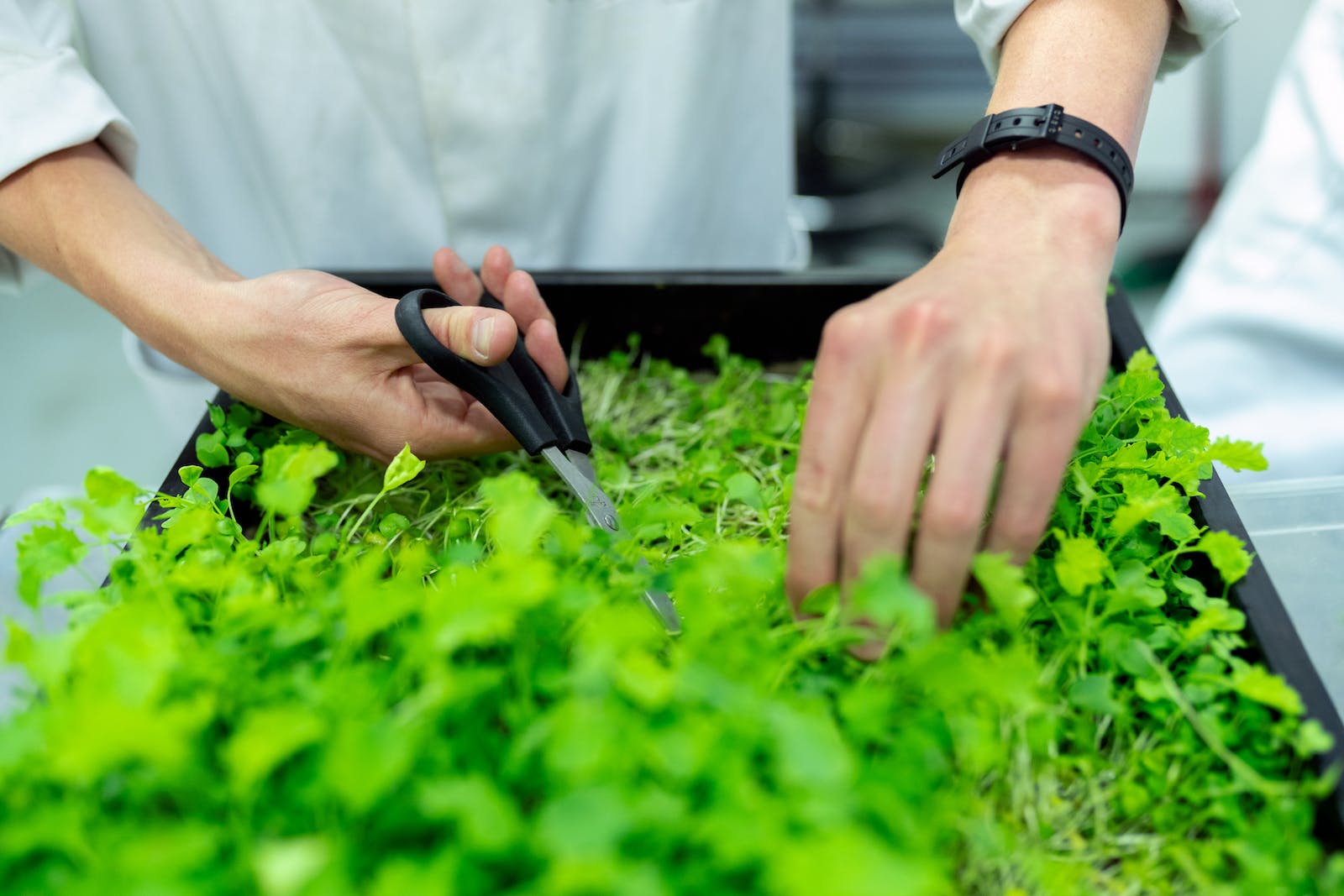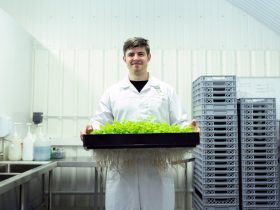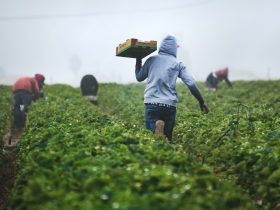In today’s world, where environmental concerns and social responsibility hold significant importance, ethical investment opportunities in sustainable agriculture have gained considerable attention. As investors seek to align their financial goals with their ethical values, the agricultural sector presents a wide range of investment options that promote sustainability, biodiversity, and ethical practices. In this comprehensive guide, we will explore various avenues for ethical investment in sustainable agriculture, highlighting key opportunities and their potential impact.
Ethical investment in sustainable agriculture goes beyond traditional financial considerations. It entails supporting projects and businesses that prioritize environmental conservation, social responsibility, and fair labor practices. By investing in sustainable agriculture, investors play a pivotal role in fostering a more resilient and ethical food system while generating financial returns.
The Importance of Ethical Investment in Sustainable Agriculture
Ethical investment in sustainable agriculture is crucial for several reasons. Firstly, it helps mitigate the negative environmental impacts of conventional farming practices, such as soil degradation, water pollution, and greenhouse gas emissions. By investing in sustainable agriculture, investors can contribute to the restoration and conservation of natural resources, promoting long-term ecological balance.
Secondly, ethical investment supports the adoption of organic and regenerative farming methods that prioritize soil health, biodiversity, and ecosystem resilience. These practices reduce reliance on synthetic pesticides and fertilizers, benefiting both human health and the environment. Moreover, sustainable agriculture techniques contribute to carbon sequestration, mitigating climate change.
Lastly, ethical investment in sustainable agriculture fosters social and economic well-being in rural communities. By supporting local and community-supported agriculture initiatives, investors create opportunities for small-scale farmers, contribute to food security, and promote fair trade practices. This, in turn, helps build resilient local economies and strengthens social cohesion.
Investing in Organic Farming
One of the most prominent avenues for ethical investment in sustainable agriculture is organic farming. Organic farming eliminates the use of synthetic pesticides, GMOs, and artificial fertilizers, promoting natural soil fertility and biodiversity. Investing in organic farming projects presents an opportunity to support environmentally friendly practices while meeting the rising consumer demand for organic produce.
Organic farms prioritize regenerative and sustainable practices, such as crop rotation, cover cropping, and composting. These techniques enhance soil health, reduce erosion, and minimize the negative impacts of agriculture on water systems. By investing in organic farms, individuals can contribute to a healthier environment and support the growth of the organic food market.

Investors can explore various options for investing in organic farming, including direct investment in organic farms, investing in organic food cooperatives, or supporting organic certification organizations. It is crucial to conduct thorough research to ensure the credibility and alignment of the investment opportunity with one’s values and financial goals.
Supporting Local and Community-Supported Agriculture (CSA)
Investing in local and community-supported agriculture (CSA) initiatives offers a unique opportunity to support sustainable agriculture while fostering community engagement. CSA programs involve consumers purchasing shares or subscriptions directly from local farmers, providing them with financial stability and a reliable market.
By investing in CSA programs, individuals support the growth of local food systems, reduce food miles, and promote sustainable farming practices. CSA initiatives often prioritize organic and regenerative agriculture, ensuring that consumers have access to fresh, nutritious, and locally produced food.
Investors can consider supporting CSA initiatives through direct investment in local farms, establishing partnerships with CSA organizations, or investing in platforms that facilitate CSA subscriptions. Investing in CSA initiatives not only promotes sustainable agriculture but also strengthens local communities and enhances food security.
Agroforestry and Permaculture Investments
Agroforestry and permaculture represent innovative and sustainable approaches to agricultural production. Agroforestry involves integrating trees and other perennial plants into agricultural systems, mimicking natural ecosystems and enhancing resilience. Permaculture, on the other hand, focuses on designing systems that work in harmony with nature, maximizing resource efficiency and minimizing waste.
Investing in agroforestry and permaculture projects supports the diversification of agricultural landscapes, improves soil health, conserves water resources, and enhances biodiversity. These investment opportunities align with the principles of sustainability and ecological stewardship, providing long-term benefits for both the environment and communities.
Investors interested in agroforestry and permaculture can explore options such as investing in agroforestry projects, supporting permaculture training centers, or investing in sustainable forestry initiatives. These investments contribute to climate change mitigation, promote sustainable land use, and offer potential financial returns.
Impact Investing in Sustainable Food Startups
The rise of sustainable food startups presents compelling opportunities for ethical investment in sustainable agriculture. Impact investing, which combines financial returns with positive social and environmental impact, has gained traction in recent years. Investing in sustainable food startups allows investors to support innovative solutions to global food challenges and promote sustainable practices.
Sustainable food startups encompass various sectors, including alternative protein production, urban farming, food waste reduction, and precision agriculture. These startups often leverage technology and innovation to address food system inefficiencies and reduce environmental footprints. By investing in such startups, individuals contribute to the development of a more sustainable and resilient food system.
Investors interested in impact investing in sustainable food startups can explore options such as venture capital funds focused on food and agriculture, crowdfunding platforms, or direct investment in early-stage startups. Thorough due diligence and understanding of the startup’s mission, business model, and impact potential are essential when considering these investment opportunities.
Investing in Sustainable Supply Chains
Investing in sustainable supply chains is another avenue for ethical investment in sustainable agriculture. Sustainable supply chains prioritize responsible sourcing, fair labor practices, and environmental stewardship throughout the entire value chain. By investing in companies that promote sustainable supply chains, individuals can encourage industry-wide improvements and drive positive change.
Investment opportunities in sustainable supply chains exist across various sectors, including organic and fair trade certifications, sustainable packaging, and logistics optimization. These investments help reduce environmental impacts, ensure fair compensation for farmers and workers, and enhance transparency and traceability in the supply chain.
Investors can explore options such as investing in companies with sustainable sourcing practices, supporting organizations that provide certification and verification services, or investing in logistics and packaging companies that prioritize sustainability. By investing in sustainable supply chains, individuals contribute to a more ethical and sustainable agricultural sector.
Conclusion
Ethical investment opportunities in sustainable agriculture offer a way for investors to align their financial goals with their values. By supporting organic farming, local and community-supported agriculture, agroforestry, permaculture initiatives, sustainable food startups, and sustainable supply chains, individuals can contribute to a more resilient, regenerative, and ethical food system. Thorough research, due diligence, and understanding of the potential impacts of investments are crucial in making informed decisions. By investing ethically in sustainable agriculture, individuals can play a significant role in promoting a healthier planet and a more sustainable future.

































